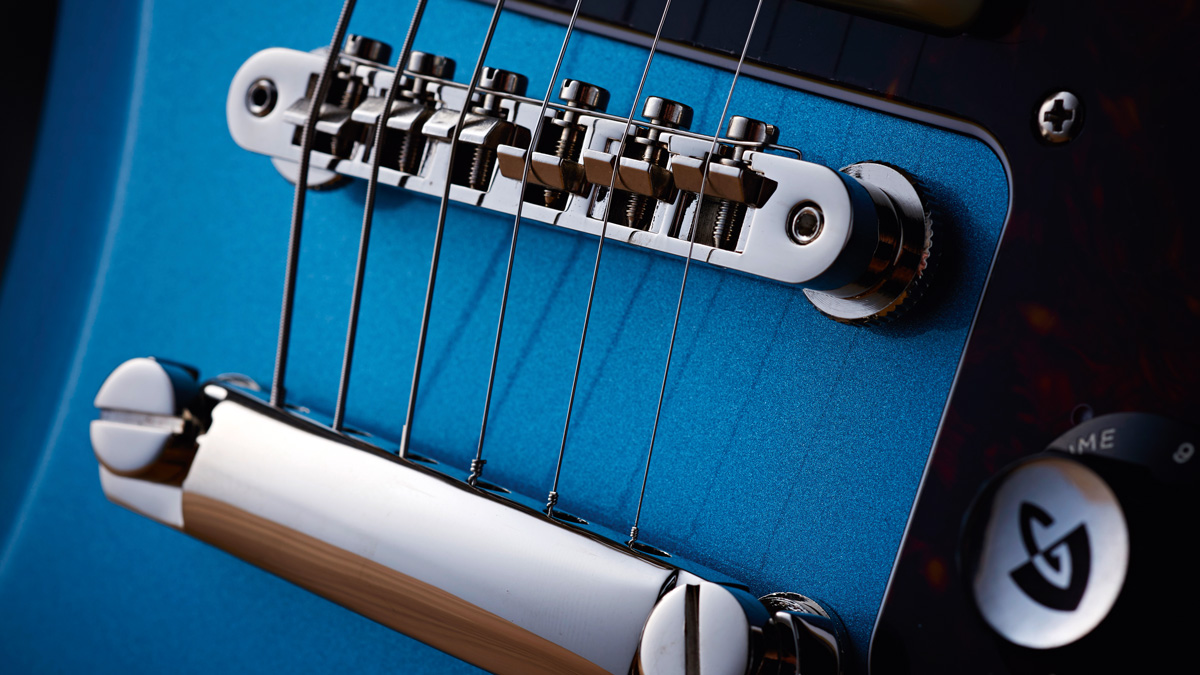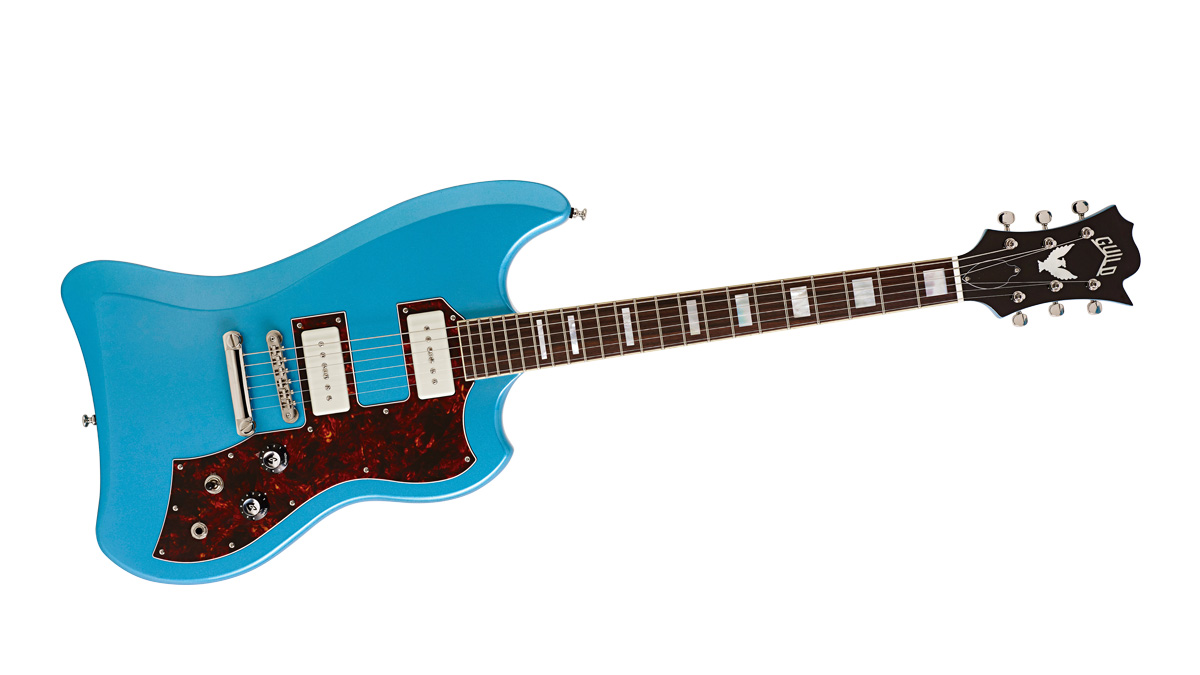MusicRadar Verdict
If you’re looking for something a little leftfield, this vision is certainly that.
Pros
- +
Nicely made repro in hardtail with no tuning or control issues.
- +
Classic-voiced P-90-style sounds.
Cons
- -
The tuners have dropped in quality from earlier models.
- -
Archaic pickup-height adjustment.
MusicRadar's got your back
We guitarists remain a conservative bunch, don’t we?
Outside of the classic electric benchmarks, few differently shaped guitars exist and even fewer achieve player acceptance.
Of course, Gibson’s modernistic ‘shapes’, the Flying V and the Explorer, have passed into the mainstream despite being ridiculed on their late 50s release, likewise the reverse and non-reverse Firebirds. But many other, err, oddly shaped guitars lie in cupboards, under beds and in dusty shop corners.
What were those guitar designers - or in indeed artists - thinking? Guild happily joined in the alternative shape craze in the swinging 60s with the S-200 Thunderbird, in stark contrast to its ‘stuffy’ archtops and semis. It appeared in 1964 and ran through to ’68 before Guild swapped its shape for a more conservative Gibson SG-like style.

Under the current Newark St Collection banner, made in Korea, the guitar was re-released last year as the S-200 T-Bird, complete with its Jazzmaster-inspired dual-circuit controls and the original-style Hagstrom vibrato.
Earlier this year, Guild released a trio of ‘ST’ models with more stable tune-o-matic bridge and stud tailpiece, and a colour-dependent choice of either Franz-style soapbar single coils or Guild LB-1 mini-humbuckers and simplified controls.
The T-Bird, shape aside, follows a very Gibson-esque formula: 629mm (24.75-inch) scale length, dual pickups and that bridge/ tailpiece setup along with all mahogany set-neck construction.
Want all the hottest music and gear news, reviews, deals, features and more, direct to your inbox? Sign up here.
From the base of the body to the tip of the headstock the guitar covers around 1,016mm (40 inches), which is about 38mm longer than a Stratocaster. The T-Bird goes for a slightly thinner and more uniform depth of 39mm with SG-like edge chamfering along with a noticeably lighter weight. In fact, this one is over a pound lighter than the original T-Bird we looked at last year.
Sounds
Strapped on, the T-Bird hangs really well. The Guild is straightforward with bridge, both and neck selections via the three-way toggle. The T-Bird’s Franz soapbars (the long-defunct US company that made the original pickups) present relatively low-output voices that retain a clear sparkle yet do a good ‘hot Strat’ impersonation, and with a little mid-boost, a thicker classic LP Special grunt.
Yes, there’s hum pick-up - aside from the mix, which is hum-cancelling - but here’s an easy-to-dial-in sound that jangles, retains clarity with crunchy gains and offers a nicely vocal, not overly mushy neck pickup voice.
This is a very showy piece, not for the conservative, shy and retiring among us
As its 60s origin suggests, the T-Bird is a classic-sounding piece and in this ‘ST’ format it’s hugely tempting, without the tuning issues we experienced with the vibrato version and with way more simple-to-use controls.
This is a very showy piece, not for the conservative, shy and retiring among us - and is well priced and fit for purpose. So are you brave enough to take it for a spin?
Dave Burrluck is one of the world’s most experienced guitar journalists, who started writing back in the '80s for International Musician and Recording World, co-founded The Guitar Magazine and has been the Gear Reviews Editor of Guitarist magazine for the past two decades. Along the way, Dave has been the sole author of The PRS Guitar Book and The Player's Guide to Guitar Maintenance as well as contributing to numerous other books on the electric guitar. Dave is an active gigging and recording musician and still finds time to make, repair and mod guitars, not least for Guitarist’s The Mod Squad.

